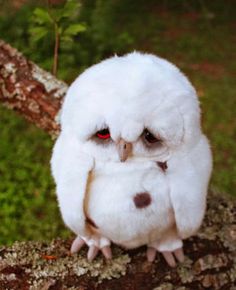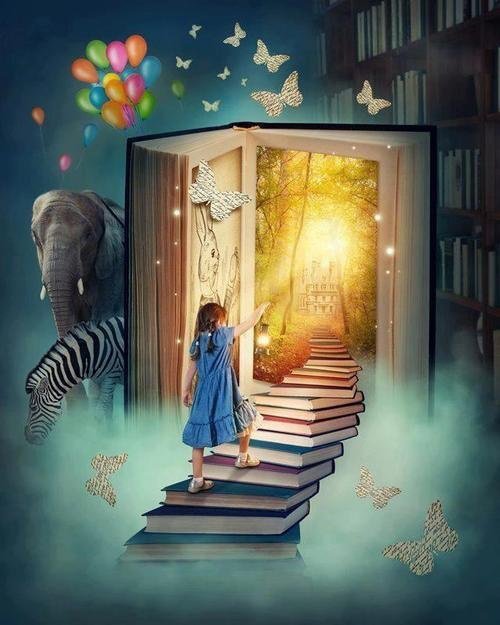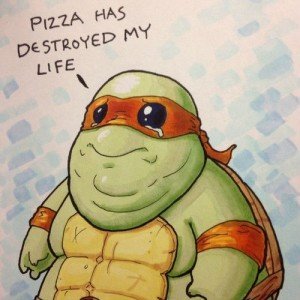
Literacy is Impossible to Define
What is literacy? This is something I have been questioning all semester and also something I never really thought of before. When I first entered the class, I did not even know what literacy was, well I did, but I definitely could not have stated a true definition if called on. I quickly searched the correct definition, according to the New Oxford American Dictionary, and was told literacy is “the ability to read and write.” Yes, that is true in itself, but throughout the semester I have built up a definition that goes beyond just reading and writing, but questions the ability to learn as a whole, not necessarily by only reading and writing. What I have learned is literacy can be mended within actions; one can enhance their own literacy through viewing an object, like watching a movie such as a fairy tale, or even just by listening to a rap song related to whatever they are supposed to be learning at that time. I believe the true definition of literacy would solely consist of a person’s ability to process the information around them.
I think one of the most eye opening assignments was the second blog we had to write. This blog involved us finding an example of literacy that had to come in an unconventional form (or in relations to this?). I HAD NO IDEA WHAT TO EVEN SEARCH FOR. This brought me through a roller coaster of  emotions because I first started panicking in my head, thinking I did not know what literacy really was, and ended up searching the definition again. And, by surprise, the same definition, “the ability to read and write,” did not help me at all. I started searching writings, which was the least unconventional and most expected example of literacy and I still was not one hundred percent sure if I had done the assignment correctly. Then I decided to spend the time to read the article, which stated, “lots of writing is not done on paper” (20). Now the panicking turned into truly thinking. I searched through my pictures on my phone again and found one that involved a cake and there it was: a message that was not done on paper! My emotions quickly turned to joy and I suddenly became excited about literacy because I finally thought I understood it (just a tad). This assignment was the thing I needed to open my mind to the idea that literacy can be everywhere, which only fascinated me into researching and expanding my knowledge a bit more.
emotions because I first started panicking in my head, thinking I did not know what literacy really was, and ended up searching the definition again. And, by surprise, the same definition, “the ability to read and write,” did not help me at all. I started searching writings, which was the least unconventional and most expected example of literacy and I still was not one hundred percent sure if I had done the assignment correctly. Then I decided to spend the time to read the article, which stated, “lots of writing is not done on paper” (20). Now the panicking turned into truly thinking. I searched through my pictures on my phone again and found one that involved a cake and there it was: a message that was not done on paper! My emotions quickly turned to joy and I suddenly became excited about literacy because I finally thought I understood it (just a tad). This assignment was the thing I needed to open my mind to the idea that literacy can be everywhere, which only fascinated me into researching and expanding my knowledge a bit more.
I really did not have a full grasp on what literacy was, just the false confidence I worked up with actually comprehending an article. It was not until the group work where I got a sense of how skewed the definition of literacy really is based on each different situation. This is where I discovered the differences between a child’s literacy and an adult’s. In addition to this, being a part of team princess for the final group project, which revolved around how fairy tales effect one’s literacy, I discovered how important positive literacy is for a child because I learned that children will take every lesson taught to them in younger years and adapt them to better fit their future. I learned that adapting the way one perceives a lesson can affect their drive to learn based on how captivating the lesson is taught. I really could not picture how I would teach my future students, because I see myself teaching adults. Now I understand that no matter what age, it is important to mend lesson plans around the short attention spans all adults have, because, let’s face it, we all get bored. Adapting a lesson plan around the aspect of fun and trying to get your students enthusiastic about learning is how to become successful in the students processing the information being taught, therefore enhancing their own literacies.
Now, I know that this is just the false confidence returning, not for processing an article, but for surviving a semester and not quitting in April. I also know that there will always be something else to learn about literacy because it is always adapting itself, especially with the strong influence technology has over students today. But, for now at least, I am content knowing that literacy is everywhere and can take on the form of anything. Asking us to define an undefinable word will only help me as much as searching for the definition and being told that literacy is “the ability to read and write.” One must go through the same roller coaster of emotions to come even close to adapting their own version of their definition of what literacy truly is. Each and every one of us in the class had our own way of processing all the information throughout the semester and each and every one of us came to different conclusions because we all still have so much to learn.





 Website:
Website: